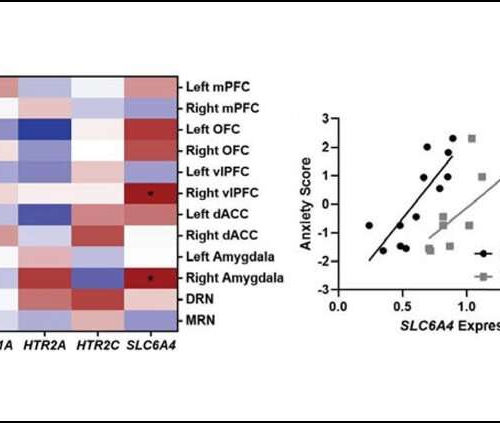by Ingrid Fadelli , Medical Xpress ADM2-AAV treatment significantly improved anxiety-like behaviors in mice. A Schematic diagram depicting the timeline of AAV2/9- VE-Cadherin-ADM2-mNeonGreen administration and subsequent behavioral tests in ADM2-KO mice. B, C The percentage of time spent in the open arm during EZM test and EPM test (n = 7 per group). D The...
Tag: <span>anxious</span>
Feeling anxious or blue? Ultra-processed foods may be to blame
by Florida Atlantic University More than 70 percent of packaged foods in the U.S. are classified as ultra-processed food and represent about 60 percent of all calories consumed by Americans. Credit: Florida Atlantic University Do you love those sugary-sweet beverages, reconstituted meat products and packaged snacks? You may want to reconsider based on a new study...
Chatbots can ease medical providers’ burden, offer guidance to those with COVID-19 symptoms
by Indiana University COVID-19 has placed tremendous pressure on health care systems, not only for critical care but also from an anxious public looking for answers. Research from the Indiana University Kelley School of Business found that chatbots—software applications that conduct online chats via text or text-to-speech—working for reputable organizations can ease the burden on...
Female Gulf War combat veterans have persistent symptoms more than 25 years later
AUGUSTA, Ga. (May 25, 2020) – More than a quarter century after the Gulf War, female veterans who saw combat have nearly a twofold risk of reporting more than 20 total medical symptoms, like cognition and respiratory troubles, than their fellow female veterans who were not deployed, investigators report. A sizeable percentage of the female...
Most young people with increased suicide risk only display ‘mild to moderate’ mental distress — study
The vast majority of young people who self-harm or experience suicidal thoughts appear to have only mild or moderate mental distress, instead of more obvious symptoms associated with a diagnosable disorder, according to a new study. As such, measures to reduce suicide risk in young people should focus on the whole population, not just those...
Why some people are more prone to anxiety
by Society for Neuroscience Gene expression of the serotonin transporter gene (SLC6A4) in the right amygdala and vlPFC correlated with anxiety-like behavior in the human intruder test. Credit: Quah et al., JNeurosci 2020 Anxiety-prone people can blame serotonin cleanup proteins gone awry in their amygdala, according to research in marmosets recently published in JNeurosci. Targeting...
Research into obsessive-compulsive disorder shows antibodies could provide new treatment
by Queen Mary, University of London Mice with high levels of this protein were also found to exhibit behaviours that are characteristic of anxiety and stress, such as digging and excessive grooming. When the researchers treated the mice with an antibody that neutralised Imood, the animals’ anxiety levels reduced. The findings have led the researchers...
Older people less anxious, more active and less likely to fall in retirement communities
A new report shows older people benefit from improved physical and mental health in retirement communities, resulting in cost savings to the NHS. Findings from the independent study into healthy ageing carried out by Lancaster and Aston Universities showed that residents living within a charity’s retirement communities: · are more physically active (75% increase in exercise) · benefit from a reduced risk of falls (18%) · are less anxious (23%) · have an...





